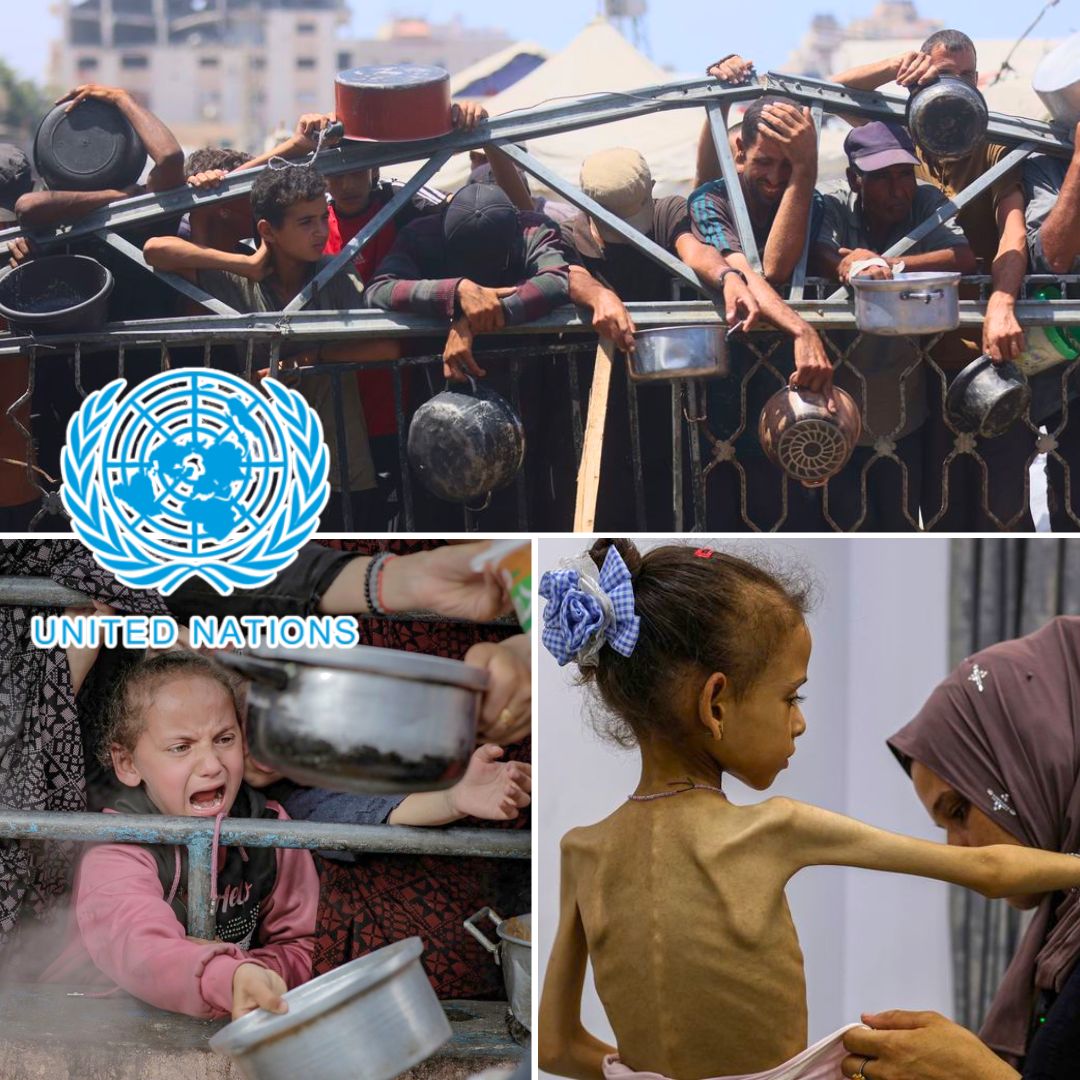The United Nations officially declared a famine in Gaza on August 22, 2025, the first-ever famine declaration in West Asia. According to the Integrated Food Security Phase Classification (IPC), over 514,000 Palestinians-one-quarter of the population-are enduring catastrophic starvation in Gaza, with numbers expected to rise to nearly 641,000 by the end of September.
The famine has been attributed directly to restrictions imposed on food, fuel, and medical aid access by Israel amid almost two years of conflict following Hamas’s October 7, 2023, incursion. While Israel rejects claims of famine, UN officials and humanitarian agencies call the crisis a dire, preventable man-made disaster demanding urgent humanitarian access and ceasefire.
Famine Reality: Starvation and Collapse of Food Systems
Gaza’s farming, fishing, and food supply systems have disintegrated under the weight of conflict and blockade. The IPC report confirmed that Gaza City and surrounding areas are engulfed in Phase 5 famine-the highest level of acute food insecurity-characterised by widespread starvation, malnutrition, and increasing mortality due to hunger and related diseases.
At least one-third of children under five suffer acute malnutrition, while 20% of households face extreme food shortages. Most cropland is inaccessible or damaged, livestock numbers have plummeted, and fishing remains banned by Israeli restrictions. Health services are strained to breaking point, and safe water and sanitation are partially unavailable. UN Humanitarian Chief Tom Fletcher warned that the famine is “entirely preventable,” lamenting that food continues to pile up at Gaza’s borders, blocked from those in desperate need.
The Conflict Culprit: Blockades and Denials
The humanitarian crisis stems from nearly two years of Israeli restrictions on goods entering Gaza, following Hamas’s October 2023 attacks. These blockades intensified into near-total bans on aid supplies from March to May 2025, only partially eased later under international pressure.
A controversial American-managed food distribution system replaced the previous UN-led programme, dramatically reducing access points and increasing the dangers to Palestinians who risk violence when seeking aid. Since May, nearly 1,760 Palestinians have died trying to access food distribution centers, with hundreds shot by Israeli forces—claims repeatedly denied by Israel.
The Israeli government dismisses the famine declaration as a “fabricated report” based on Hamas data and denies systematic obstruction, arguing that aid trucks remain unused at crossings. However, UN Secretary-General António Guterres reproached Israel for violating international humanitarian law by blocking food and medical supplies to the occupied territory.
International Urgency and Calls for Compassionate Action
UN agencies including WHO, UNICEF, FAO, and the World Food Programme issued joint statements urging immediate, unimpeded aid access. The UN Human Rights Chief Volker Türk called starvation a weapon of war and a potential war crime. The famine’s declaration has intensified global appeals for a ceasefire and humanitarian corridors, as military actions in Gaza City threaten to displace one million Palestinians already caught in famine conditions.
The international community faces mounting pressure to prevent further loss of civilian lives by prioritising compassion, dialogue, and political will.
The Logical Indian’s Perspective
The famine in Gaza underscores the heartbreaking human consequences of protracted conflict and restricted humanitarian access. It lays bare how war zones become grounds for preventable suffering when politics inhibit life-saving relief.
The Logical Indian reaffirms the need to transcend polarisation and champion peace, empathy, and coexistence. Starvation is not just a statistic but a profound moral imperative to act with kindness and respect for human dignity. The world must amplify voices demanding de-escalation and swift aid to all in need.












